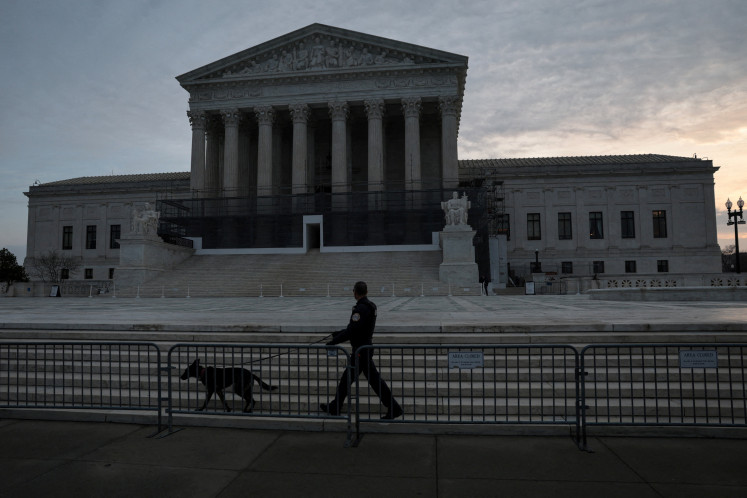Popular Reads
Top Results
Can't find what you're looking for?
View all search resultsPopular Reads
Top Results
Can't find what you're looking for?
View all search resultsStocks fluctuate as traders await next moves in Trump trade war
Change text size
Gift Premium Articles
to Anyone
E
quities meandered Tuesday as investors awaited the latest developments on Donald Trump's trade war, while the yen rallied after the head of Japan's central bank flagged more interest rate hikes if the economy improved.
With Wall Street closed for a holiday, there were few major catalysts to drive business, though investors remain on their toes after the US president's threat of 50 percent tariffs on European Union goods and subsequent delay reviving volatility.
But analysts said the uncertainty caused by Trump's capricious policy announcements, along with his plans to extend tax cuts, was hurting confidence in the US economy and pushing Treasury yields higher.
"Markets are once again dancing on hot coals, front-running White House mood swings while dodging macro landmines," said Stephen Innes at SPI Asset Management.
"With yields dangling like anvils and tariff threats swinging like wrecking balls, the only thing certain is that the music won't stop -- until it does. Traders, keep your running shoes on."
Europe bounced on the news of the tariff delay, and European Commission President Ursula von der Leyen's pledge to move swiftly on a trade deal with the White House.
But Asia swung between gains and losses.
Hong Kong, Sydney, Singapore, Jakarta, Manila and Wellington rose, while Tokyo, Shanghai, Seoul and Taipei were slightly lower.
The yen rose against the dollar after BoJ boss Kazuo Ueda said he intended to keep raising borrowing costs if the economy performs as expected.
He told a conference in Tokyo that "we will adjust the degree of monetary easing as needed".
His remarks came after officials earlier this month cut their economic growth forecasts in light of Trump's tariffs blitz.
"In light of growing uncertainties, particularly those related to trade policy, we have recently revised down our economic and inflation outlook," Ueda said, but added that he still expected price rises to temper and fall back to the bank's two percent target.
The yen strengthened to 142.12 per dollar, with analysts saying the greenback is facing increasing pressure because of worries over US policy.
"In a way, all roads have led to a weaker dollar. Higher perceived US deficits have raised concerns about increased future Treasury issuance, pushing up term premium and seeing people migrate away from the dollar," said Pepperstone's Chris Weston.
"Concerns of weaker US growth in the second half of 2025 sees dollar sellers. Tariff risk resurfaces, the dollar trades lower and when the tariff risk and the implementation date is subsequently pushed back, again we see the dollar lower."
Traders are also awaiting the release of minutes from the Federal Reserve's May policy meeting, hoping for an idea about its plans in light of the trade war, while the central bank's preferred inflation gauge is due at the end of the week.











